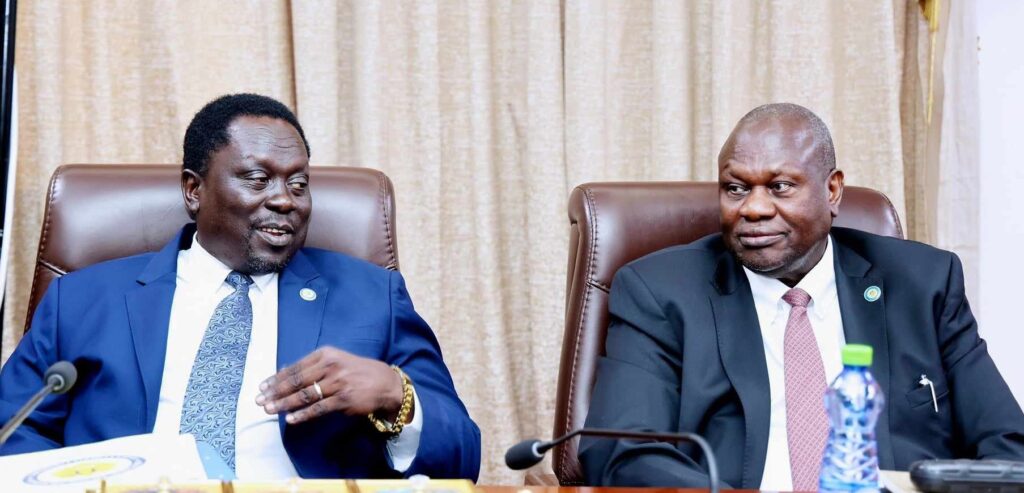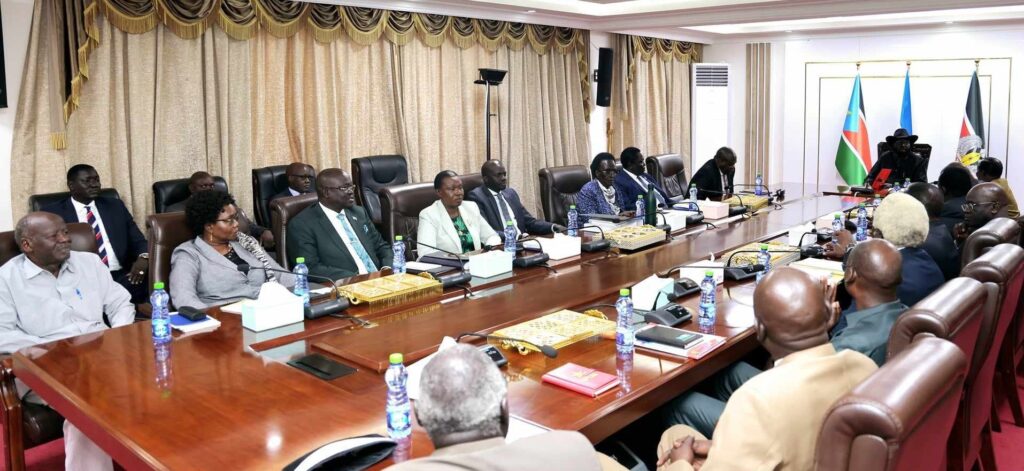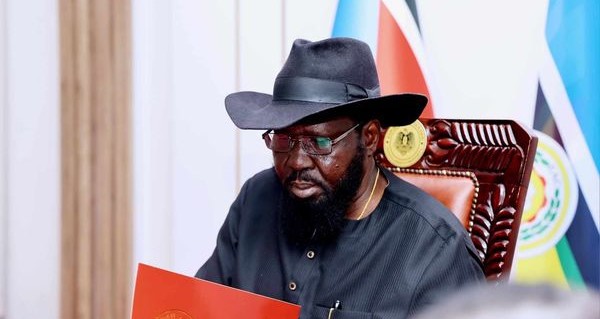South Sudan’s transitional government said Friday that long-awaited elections in December 2024 would be postponed for a further two years, once again extending a transitional period agreed in a 2018 peace agreement.
While a peace deal six years ago ended a 2013-2018 civil war between President Salva Kiir and his rival, First Vice President Riek Machar, relentless feuding between the two men has repeatedly delayed a transition that was supposed to pave the way to future polls.
Friday’s announcement is the latest delay to elections in the world’s youngest nation, since proposed elections in February 2023 were pushed back after the government failed to meet key provisions of the agreement.
While addressing the press on Friday evening, Tut Gatluak, the Presidential Adviser on Security who doubles as the chairman of the High-level Standing Committee for the Implementation of the 2018 Peace Agreement and the Roadmap, said the extension is an opportunity to implement the critical remaining protocols in R-ARCSS, such as the permanent constitution process, census, and the registration of political parties.
For his part, Cabinet Affairs Minister Dr Martin Elia Lomuro told the media that the decision would allow parties to the 2018 peace deal to implement the pending critical tasks.
Lomuro said the extension was done based on recommendations from both electoral institutions and the security sector.
“We were directed by the presidency to review (implementation of the revitalized peace deal) and these institutions made their assessments of the implementation process but also the Constitutional Review Commission, the National Election Commission, the Political Party Council and National Bureau of Statistics also made their reports and from all these reports they made recommendations,” Lomuro explained.

The official further said the transitional government will no longer dissolve its executive and legislative by 22 September according to the National Election Act 2023, adding that it will function as usual and institutions will continue to implement the provisions of the extended peace deal.
“Two or three issues were recommended; one, they didn’t complete all the tasks that are critical for the conduct of elections in December 2024; two, they needed us to approve an extension first to postpone the election and to extend the transitional period as a result of postponement. We submitted this report to the presidency, and the presidency has endorsed that elections should be postponed or delayed according to recommendations of security sector institutions and election-related institutions,” he said.
According to Minister Lomuro, the 24-month extension begins in February 2025 and ends in February 2026.
International observers have become increasingly exasperated with South Sudan’s political leadership, with Kiir and Machar’s long-running and destructive feud repeatedly stymieing progress on general elections.
After the presidency meeting, a government official who preferred anonymity told Radio Tamazuj that the extension of the transitional period could affect the progress of the Tumaini Initiative talks between the transitional government and the holdout opposition groups.
Another source revealed that the Troika group of nations (Norway, the United States and Britain) has clearly told the transitional government in Juba that they will only support a further extension of the transitional period with the involvement of the Tumaini Initiative.
“The government is under pressure from the Troika because of another extension. US Ambassador Michael Adler informed the leadership two days ago that they can support another extension if it includes Tumaini. The Troika wants the Tumaini Initiative to serve as an avenue for another extension, but the government did not accept this idea,” he said.
“Our argument as the transitional government is that the holdout opposition groups are not part of the Revitalized Government and the 2018 peace agreement. So, they cannot decide on any changes to the 2018 peace deal or further extension,” he concluded.

Meanwhile, Edmund Yakani, a South Sudanese civil society activist said: “It is unfortunate that the parties to the Transitional Government of National Unity decided to extend the political transitional process for another two years from 2024 to 2026 in the same manner of extending the last 24 months.”
He added,” This newly extended political transitional period of two more years will only succeed if the president and the first vice president regain trust and confidence for working together to transition the country from political instability to stability. The presidency can also only do miracles in the newly extended transitional period if they can direct the new national budget and funds specifically for the implementation of the pending tasks of the peace deal.”




